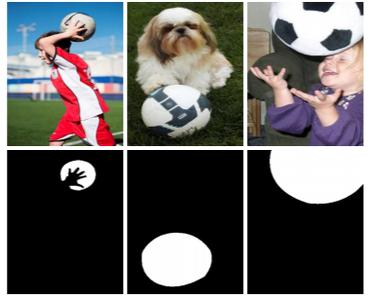Towards Open-World Co-Salient Object Detection with Generative Uncertainty-aware Group Selective Exchange-Masking
The traditional definition of co-salient object detection (CoSOD) task is to segment the common salient objects in a group of relevant images. This definition is based on an assumption of group consensus consistency that is not always reasonable in the open-world setting, which results in robustness issue in the model when dealing with irrelevant images in the inputting image group under the open-word scenarios. To tackle this problem, we introduce a group selective exchange-masking (GSEM) approach for enhancing the robustness of the CoSOD model. GSEM takes two groups of images as input, each containing different types of salient objects. Based on the mixed metric we designed, GSEM selects a subset of images from each group using a novel learning-based strategy, then the selected images are exchanged. To simultaneously consider the uncertainty introduced by irrelevant images and the consensus features of the remaining relevant images in the group, we designed a latent variable generator branch and CoSOD transformer branch. The former is composed of a vector quantised-variational autoencoder to generate stochastic global variables that model uncertainty. The latter is designed to capture correlation-based local features that include group consensus. Finally, the outputs of the two branches are merged and passed to a transformer-based decoder to generate robust predictions. Taking into account that there are currently no benchmark datasets specifically designed for open-world scenarios, we constructed three open-world benchmark datasets, namely OWCoSal, OWCoSOD, and OWCoCA, based on existing datasets. By breaking the group-consistency assumption, these datasets provide effective simulations of real-world scenarios and can better evaluate the robustness and practicality of models.
PDF Abstract



